SUMMARY
This is AI generated summarization, which may have errors. For context, always refer to the full article.

Singapore-based worker Reynita Fernandez was only in Grade 3 when she started immersion in the children’s department of Pastor Apollo Quiboloy’s Kingdom of Jesus Christ (KOJC). Her mother, a devoted member of the church, said nothing when 14-year-old Reynita answered the call to be a full-time worker.
The teenager and three jeepney loads of minors took a land and ferry trip from Davao City, Quiboloy’s base, to Quezon City, where they were “packed like sardines” in a rented house. They spent an entire month soliciting funds from strangers, using the cover of several foundations to meet quotas.
The shy Fernandez learned to hop aboard buses to preach and beg. She even ended up in a cockfighting ring, scrabbling at dirt to collect money thrown by gamblers. “You really have this eagerness. We have to do this. I have to earn money. I have to go home with lots of money. I need to find some way,” she told Rappler.

Arlene Caminong Stone, now based in Minnesota in the US, was Fernandez’s contemporary. She said they pretended to be orphans, sometimes deaf-mutes, determined to continue with schooling.
The reality was the opposite. “I was in my third year of high school when they told me that I had to stop going to school because December was coming up and December was a big money-making month,” said Stone.
Later, she was told to drop out of school. This was in 1991, Stone remembered, and Mount Pinatubo in Zambales had just erupted. “Apollo Quiboloy made a claim that it was the ultimate sign of the Second Coming. That’s why we have to leave our school, to leave our family. And join the ministry,” she said.

Meanwhile, Fernandez, stressed out by impossible demands, ran away from the “kingdom” in 1998.
“I didn’t get out because I saw something wrong. I felt I wasn’t worthy anymore. It’s because I couldn’t cope with the goal and the quota and everything financial,” she said.
Only then did Fernandez realize how little she knew about the world after spending her formative years in a mental tunnel, where only orders mattered and church ministers viewed questions as the devil’s work.
Fernandez said escape was “liberating.” Yet she kept the KOJC faith, fearful of being cast into hell. She continued sending financial contributions for two decades. She tacked Quiboloy’s face on her bedroom wall.

The KOJC welcomed her back into the fold in 2016, when she found work in Singapore. Then the old “nightmare” returned.
She was ordered to lead one of several Quiboloy fund-raising groups in Singapore.
KOJC members, cans in hand, roamed crowded Bukit Timah, Harbourfront, Holland Village, Bishan Market, Serangoon, Tampines, and Jurong Point, asking passersby for donations from 8 am to 8 pm daily.
A member had to fill three cans a day. The contents of each can ranged from SG$300 (about P11,000 today) to SG$400 (about P14,700). She said KOJC workers committed fraud fronting for KJC Society in Singapore. They applied for permits, but fudged reporting, declaring collections of only SG$20 (P735 today) or less each can.
Fernandez recalled that one of the KOJC groups remitted to the Philippines as much as SG$5,000 (about P184,501) for a week’s collections. It tried to evade the attention of Singapore’s strict fiscal authorities by splitting the money into small batches, not more than SG$2,000 (P73,800) each.
Honolulu-based lawyer Michael Jay Green, Quiboloy’s chief legal counsel, called all the accusations “a bunch of nonsense,” even as he pinned all the blame on the former manager of the pastor’s aircraft fleet, a Nepalese named Shishir Bhandari.
Green said Bhandari, his Filipino wife, and in-laws – ex-members of KOJC who held key positions in the church – were behind Quiboloy’s indictment, and they supposedly reached out to former members “around the world” to get them to say nasty things about the preacher.
He alleged that everything was orchestrated by Bhandari, his wife, and extended family after they supposedly flew out of the Philippines when they learned that they were being audited by KOJC.
Green alleged that Bhandari then made a deal with the Federal Bureau of Investigation (FBI) in an attempt to bring Quiboloy and his church down.
Beasts of burden
The “appointed son of God,” as Quiboloy calls himself, was not content with tithes representing a tenth of the members’ income, the former members said.
US-based former follower Faith Killion told Rappler that every Sunday service included calls for “love offerings” even bigger than the tithes.
In Singapore, Fernandez gave SG$200 (P7,380) every month. Like everyone else, she had to scramble to meet quotas for Quiboloy’s April 25th birthday and the “Month of Blessing” (MOB) – also called the “Month of Sacrifice.” It typically coincided with the Christmas season as fund-raising usually began in the month of September.
Killion said there were offerings for the ministry for the poor, the television ministry, for the KOJC’s publications, for concerts, for a stadium project in Davao City, and an emergency fund. There were also “wave offerings” – cash in envelopes that members handed over as they danced to chirpy choir songs after the sermons.
Fernandez’s group was directed to raise SG$12,000 (about P442,800) for the MOB. She had to deliver SG$500 (about P18,450) for Quiboloy’s birthday; her group also had to turn over SG$2,500 (about P92,250) for the same event. Those birthday gifts, and proceeds from the “Tribute to the King mid-year Sacrifice,” bought new homes and cars for the “appointed son of God.”
In the US, quotas for the MOB ranged from US$10,000 (over P503,000) to US$50,000 (over P2.52 million), depending on one’s financial status and ability to raise money, Killion said.
Quiboloy’s wealth was built on the heaving backs of his followers. The children of the KOJC labored like mules. Unmet quotas were considered debts. They also led to harangues about one’s cursed soul.
Killion said members of her batch in Manila woke up at 3 or 4 am for prayers. By 6 am, they were at their work areas. “We were not allowed to go home. It didn’t matter if it’s past midnight, until we met our individual quotas,” she said.
Fernandez and Stone served together in the 1990s. Stone said they dragged heavy loads of rice cakes in Kidapawan and General Santos, returning to Davao only to shower and repack, snatching sleep on their jeepney shuttles.
When an ailing Fernandez appealed for a reprieve in Singapore, she was brushed off. Fernandez said she had to lose her house in the Philippines, and hit a low of having no daily fare money, before she finally broke free.

In Hongkong, ex-”kingdom” member “Fatima” and her group were once ordered to raise HK$300,000 (over P1.9 million) for an MOB. When they failed to hit the target, they were berated as dumb and lazy, and told to make up for the shortfall the following year.
The MOB exacted grim attrition on members. Students dropped out of school, employed members could find themselves jobless at the close of season. Even the most loyal of followers get dumped when age and illness take their toll.
Killion left the KOJC after 25 years of service, but her mother, a real estate broker who excelled in closing deals, stayed on as a full-time worker until she suffered a recent bout of illness.
“All that she earned went to Quiboloy’s group. Before she got sick, she remitted P380,000 to the ‘kingdom,’” Killion said.
But when her mother suffered a stroke while working for the KOJC, the devoted believer was left to shoulder her hospitalization and other medical costs. Without her daughter, she would have died of hunger.
Groomed for exploitation
Quiboloy and his lieutenants allegedly groomed those targeted for exploitation, whether in Davao, in the US, or in Asian countries.
Stone, a former pastoral, survived beatings and domestic servitude to Quiboloy in Davao City. She left her pastoral duties and migrated to the US in 2004. (Pastorals refer to privileged and attractive women who perform special tasks and do numerous errands for Quiboloy as supposed forms of service to God.)
A year after, a visiting Quiboloy was showering Stone with attention, including exclusive lunches. She was also exempted from the costs charged to lapsed members returning to the ministry, which Killion placed at P50,000 (roughly $1,000).
The church had done its homework. Stone had by then married a pilot, who more than adequately provided for the family. She could afford to send her own income exclusively to the church.
She sheltered and fed KOJC workers, rented cars for them, and even paid US$18,000 (over P906,000) in accident damage costs as her “share of the kingdom’s work.” But Quiboloy wanted more from Stone: the services of her pilot husband and a return to Davao City, where he promised free housing and education for her children.
Stone and her now ex-husband turned down the offer. After they divorced, she also turned down a request to marry a minister.
Then her mother got sick. Stone asked to be spared contributions but ministers told her the ailment was punishment for defying Quiboloy’s wishes.
“That’s why I was cursed, that’s why my mom had to pay for it,” Stone recalled them telling her. Only then did she sever all ties to the church.
“Fatima” was also pampered, and was thus induced to begin using her funds to purchase food that she cooked and sold, turning over to the “kingdom” all proceeds and even capital.
One Sunday, she spent HK$1,000 (over P6,400). She took out a HK$30,000 loan (over P193,000) for the church. Even her passport was pawned to raise funds for the KOJC.
But when church leaders told her to lie and borrow HK$10,000 (over P64,500) from her employer, Fatima erupted and called it quits.
‘Bogus charity work’
Like Fernandez, Killion grew up in the church, soaking in the sermons of Quiboloy, courtesy of her mother, a dedicated follower.
At the age of 12, Killion was out on the streets, soliciting. She later worked, part-time, for the church’s tri-media department, doing voiceovers and transcribing the preacher’s sermons.
From that vantage point, she listed down through the years the many Philippine groups the solicitors represented:
- The Children’s Joy Foundation Incorporated
- Handog ng Pagmamahal Association Incorporated
- Psalm of David Harmonic Orchestra Incorporated
- The Sheavers Association
- Alay Sa May Mga Kapansanan Association Incorporated
- Pagdamay sa Dukha Association Incorporated
- Pag-asa ng Buhay Association Incorporated
- Pag-Asa ng Buhay Foundation Incorporated
- Life Giver Association Incorporated
- Sonshine Philippines Movement
- Indigenous Peoples Innovation and Yields for Assured Lives Foundation Incorporated (IPIYAL)
- The Keepers Club Incorporated
- Batang Kaharian
- Kingdom Children Growth School (KCGS)
As of December 10, KCGS has no record of registration with the Securities and Exchange Commission (SEC). Batang Kaharian is a TV show produced by Quiboloy church’s Sonshine Media Network International (SMNI) under Swara Sug Media Corporation. (READ: Quiboloy’s news group repeatedly red-baits Makabayan bloc during COC filing)
The high-profile CFJI has a main shelter for orphans and abandoned children in the church’s Davao compound. Occasionally, it organized children’s parties in Davao, Africa, and even in the US. In 2019, Social Welfare Secretary Rolando Bautista gave the foundation the top award for non-governmental organizations during the Department of Social Welfare and Development’s Panata Awards.
Killion and the women who bolted from KOJC, however, claimed children’s parties only happened “once in a blue moon,” usually coinciding with Quiboloy’s birthday or other big KOJC events when they would invite guests. The children in the Davao facility were actually children of KOJC workers, they added.
These former believers want the government to probe into CFJI’s operations, as US prosecutors have called it a bogus charity organization used as a front for alleged money laundering and sex trafficking operations.

Dark side of faith
Even as KOJC members raised funds for the church, they were also the captive market for Quiboloy relics: photographs, pieces of color-coded cloth soaked in oil, scented oil, handkerchiefs with embroideries of the preacher’s name, and prayer booklets.
Much like how the Catholic church sells objects to help believers with their every need, the KOJC marketed the Quiboloy items as having supernatural powers for healing, protection, and prosperity.
Sociologist and Ateneo de Manila religion professor Jayeel Cornelio said Quiboloy’s narrative of his latest dream has God declaring, “Apollo, your name is My name and My name is your name.” That’s a jump to godlike status, no longer just the anointed but the divine anointing power.
That, and his claim of being persecuted, can only increase pressure on KOJC members to meet even the most unreasonable demands. The fear is mixed with the smugness of exceptionalism. Identity generates pride. The stronger that is, the greater the anxiety over banishment.
The stricter the church is, according to Cornelio, the stronger it is from a sociological perspective. Members face tough tests for acceptance. And leaving is much harder. – Rappler.com
(To be concluded: Part 3 | Stolen lives, lost identities: Quiboloy’s ex-followers traumatized for years)
Add a comment
How does this make you feel?
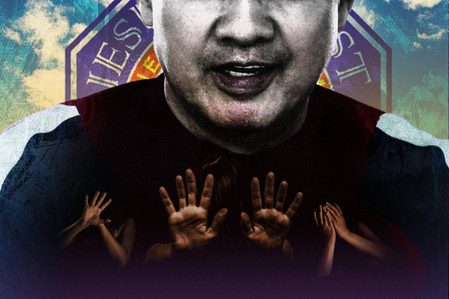



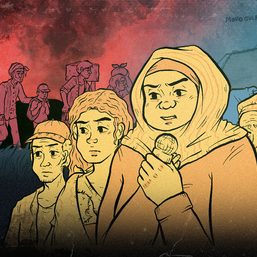
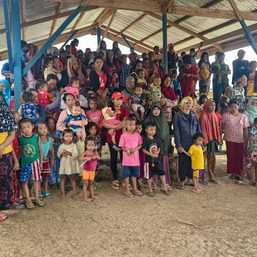


![[The Slingshot] Lito Patay’s 4 hours and 38 minutes of infamy](https://www.rappler.com/tachyon/2024/07/Lito-Patay-4-hours-infamy-July-19-2024.jpg?resize=257%2C257&crop=233px%2C0px%2C720px%2C720px)

![[Pastilan] The Great Philippine Identity Sale](https://www.rappler.com/tachyon/2024/07/great-philippine-identity-sale-july-16-2024.jpg?resize=257%2C257&crop=486px%2C0px%2C1080px%2C1080px)











![[OPINION] Rodrigo Duterte and his ‘unconditional love’ for China](https://www.rappler.com/tachyon/2024/04/rodrigo-duterte-xi-jinping-august-2019.jpeg?resize=257%2C257&crop=91px%2C0px%2C900px%2C900px)







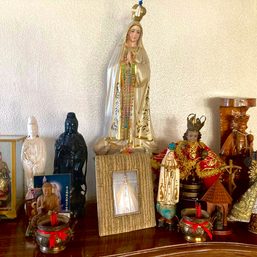
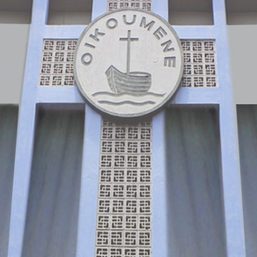
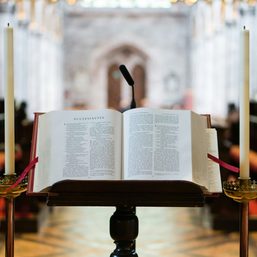







There are no comments yet. Add your comment to start the conversation.